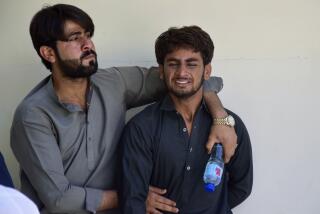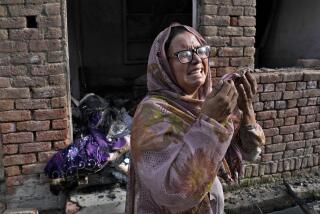Karachi Police Are Shuffled
KARACHI, Pakistan — The Karachi police chief was transferred Wednesday and the government promised more changes after three days of unrest claimed at least 26 lives.
Government officials struggled to explain what was behind the violence, with one accusing the Al Qaeda network of trying to spark sectarian fighting between the Sunni Muslim majority and the Shiite minority.
The chief minister of Sindh province, Ali Mohammed Maher, met with security chiefs to discuss the worsening situation in the city of 14 million people, sparked by the assassination of a prominent Sunni cleric Sunday and the suicide bombing of a Shiite mosque a day later.
Rioting by Sunni and Shiite mobs followed the attacks, with most violence -- including gunfire -- aimed at hundreds of riot police deployed in different neighborhoods. Shops, cars, buses and buildings were set afire. Four civilians died in exchanges of gunfire.
Karachi Police Chief Asad Ashraf Malik and two other senior officers were transferred Wednesday, police spokesman Mughis Pirzada said. No explanation was given and no replacements announced.
Religious Affairs Minister Ejaz Haq told a news conference in the capital, Islamabad, that the most recent violence was “Al Qaeda-related.”
“There are no Sunnis fighting Shiites,” Haq said. “There is no sectarian fighting. But the whole purpose behind this is that there should be a Shiite-Sunni clash. This is a very well-calculated strategy, which is being implemented by terrorists.”
Earlier, Interior Ministry spokesman Abdur Rauf Chaudhry wouldn’t speculate on a role by Al Qaeda. “We think they were sectarian incidents,” he said.










